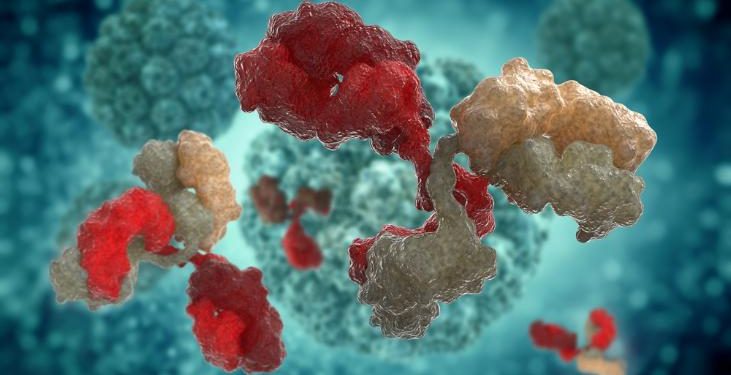A type of cancer that begins in the cells that line your esophagus. The cells that form tumors grow and divide rapidly. Sometimes they grow to the point that they partially block your esophagus, which makes it difficult for you to swallow food and liquid.
Healthcare providers use a series of tests to diagnose esophageal cancer. They look for the presence of certain types of cancer cells and determine tumor grades.
Symptoms
The esophagus is a long, muscular tube that carries food from your throat to your stomach. It is lined with cells that produce mucus, which helps to digest food and liquids. Cancer develops when these cells begin to grow out of control.
There are many different types of esophageal cancer. Two of the most common are squamous cell carcinoma and adenocarcinoma. In rare cases, other types of cancer such as lymphoma, melanoma, carcinoid tumors, and leiomyosarcoma can occur in the esophagus.
Symptoms of esophageal cancer can vary from person to person. They may include pain in your throat or back, behind your breastbone, or between your shoulder blades. These symptoms may also get worse over time.
If you have these symptoms, make an appointment with your health care provider right away. They can help you figure out the cause.
In some cases, a biopsy (the removal of tissue for examination under a microscope) may be needed to diagnose esophageal cancer. Your doctor will likely use a procedure called an endoscopy to get a sample of tissue from your esophagus.
Other tests can help find out if you have esophageal cancer and how far it has spread. For example, a CT scan or an MRI can show if your cancer is in only one part of your esophagus or has spread to other parts of your body.
Your doctor will recommend treatment based on the type of esophageal cancer you have, how far your cancer has progressed, and your general health. They may suggest surgery, chemotherapy, radiation therapy, or a combination of these treatments.
If your cancer hasn’t spread to other areas of your body, you can live longer after a diagnosis of esophageal cancer. But if it has, you’ll need time and help to come to terms with your situation. Talk to your friends and family about what you are going through. They can be a great support to you. You can also find help from a counselor, medical social worker, or pastor or religious leader. You can also ask your doctor for support groups in your area.
Diagnosis
Your doctor diagnoses esophageal cancer after examining you and taking a sample of tissue for testing (biopsy). This is usually done using a scope that is passed down your throat into your esophagus. The tissue is then looked at under a microscope by a pathologist to check for cancer cells.
Your health care provider will also order other tests to find out if the cancer has spread beyond the lining of your esophagus. These include computed tomography (CT) scans, positron emission tomography (PET) scans, and a test that measures how fast your esophagus moves when you swallow liquid or food.
These tests help your doctor know which treatment to give you. They will also let you know the stage of your cancer. The stage of your cancer tells your doctor how much the tumor has grown and if it has spread to other areas of your body, such as nearby lymph nodes.
Some esophageal cancers grow so large that they block the opening of your esophagus. If this happens, your doctor may be able to use instruments to help stretch the area open so you can eat and drink.
In addition to the types of tests listed above, your doctor will use an endoscope to look at the inside of your esophagus. This is a thin, flexible tube with a light and a video camera on the end. It is passed down your throat into your esophagus while you are sedated. The doctor can then see any abnormal areas. A biopsy can be taken with the endoscope if necessary.
Other diagnostic tools used for esophageal cancer include a chest x-ray and an ultrasound of your esophagus. A radiologist can perform these tests and analyze the results to see if you have esophageal cancer or another disease. You might also want to think about taking part in a clinical trial for new treatments. These trials can help your doctors discover better ways to treat esophageal cancer or other diseases. The PDQ cancer information summary for this disease has more information about clinical trials.
Treatment
A person’s chance of recovering from esophageal cancer depends on the type and stage of the disease. Treatment options include surgery, radiation therapy, and chemotherapy. In some cases, people may benefit from combination therapy.
During the AJCC staging workup for esophageal cancer, healthcare providers determine how far the cancer has spread, if it has invaded the surrounding tissue or organs and, if the tumor cells are low- or high-grade (which indicates how fast the cancer is growing). The location of the tumor in the esophagus and how close it is to other vital structures in the esophageal region also influence the treatment plan.
Staging for esophageal cancer is important because it helps healthcare providers make decisions about pre-, peri- and postoperative care plans. Several advancements have been made in staging for esophageal cancer, which allows healthcare providers to identify patients who are good candidates for aggressive multimodality therapy. Patients with localized resectable disease and negative nodal involvement have excellent survival rates. Patients with nodal disease or metastatic esophageal cancer have poorer outcomes and should be approached from a palliative perspective.
To diagnose esophageal cancer, healthcare professionals take a sample of the tissue for testing (biopsy). They use a scope passed down the throat into the esophagus to collect the biopsy. They also use CT scans to see how far the cancer has spread within the esophagus and to nearby lymph nodes.
Aside from the treatment itself, healthcare providers will monitor a patient’s general health and appetite after esophageal cancer treatment to ensure that he or she is able to eat enough to maintain a healthy weight and stay strong. They may also test a patient’s blood and lungs to assess the condition of the lungs and heart.
After a treatment plan is decided upon, a person must undergo complete re-staging with the help of a multidisciplinary team to ensure that all of the cancerous tissue has been removed. This team usually consists of a surgeon, medical oncologist, radiologist and gastroenterologist, as well as a clinical pathologist or gastroenterologist who is skilled in performing endoscopic ultrasounds (EUS). Ideally, this evaluation should be performed prior to starting any neoadjuvant chemotherapy or radiation therapy.
Prevention
The esophagus is a long, muscular tube that carries food from your throat to your stomach. During digestion, strong contractions of the muscles in the walls of your esophagus mix and stir your food as it travels down into your stomach. When cancer grows in your esophagus, it may grow so large that swallowing becomes difficult. This difficulty is known as dysphagia. Other symptoms of esophageal cancer include chest pain, coughing or spitting up blood, weight loss and trouble breathing.
Unless caught early, almost all cases of esophageal cancer are fatal. Fortunately, esophageal cancer is often found by chance in people who are being examined for another reason. This allows doctors to find and treat the cancer before it becomes advanced.
Cells in your body normally grow and divide to replace old cells. But if a mutation in your DNA disrupts this process, abnormal cells begin to grow and accumulate. Cancer of the esophagus develops when these cells begin to grow out of control and form a tumor.
Smoking and chronic acid reflux both increase your risk of esophageal cancer. Heavy alcohol use increases your risk as well. Being overweight is also a factor because it can lead to inflammation of the esophagus, which could become cancerous.
Barrett’s esophagus is an abnormal condition that can be pre-cancerous or, in more advanced stages, a form of esophageal cancer called squamous cell carcinoma of the esophagus (ESCC). The development of ESCC usually begins with changes in the cells at the lower end of the esophagus that progress to low-grade intraepithelial neoplasia and then high-grade intraepithelial neoplasia. Eventually these abnormal cells can spread to other parts of the esophagus or to other areas of the body, where they can become adenocarcinoma.
The good news is that, by making a few lifestyle changes, you can greatly reduce your risk of developing esophageal cancer. Eat a balanced diet, particularly non-starchy vegetables and fruits, and limit your intake of red meat, soups, milk and butter. You should also practice safe sex, using a condom during oral or vaginal sex to help prevent the infection that causes certain types of esophageal cancer.









